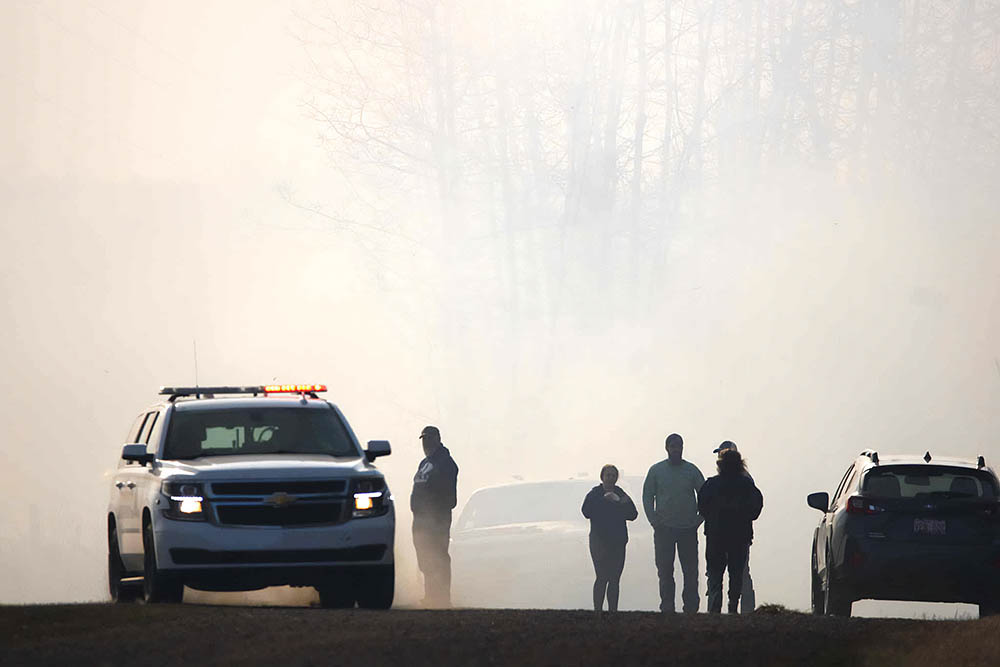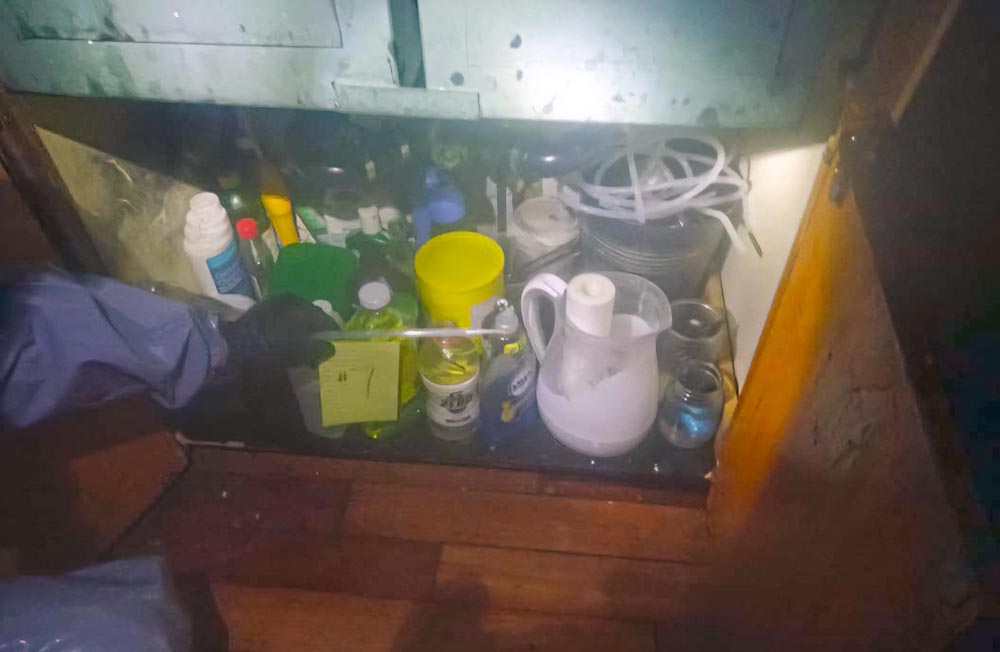John Chilibeck,
Local Journalism Initiative Reporter
Mario Levesque is among the one in five New Brunswickers who don’t have a family doctor, a situation that made his life miserable when his foot was broken last year.
For 14 months or so, the political scientist at Mount Allison University dragged around his damaged foot. He tried virtual health care and after-hour clinics, but the professionals couldn’t provide him a referral to a specialist, according to the rules.
The results of the latest New Brunswick Health Council survey don’t surprise Levesque. They show that in 2023, only 79 per cent of people in the province had a family physician or nurse practitioner, down from 93 per cent in 2017.
The downward trend represents more than 100,000 additional people without a family doc.
The professor spent two full days with his laptop in the waiting room of the Sackville Memorial Hospital’s emergency department, but his problem wasn’t acute enough to warrant being seen ahead of other patients.
It wasn’t until a worker in the ER quietly told him to come back on a sunny Saturday, when fewer patients show up, that he figured out how to game the system and finally see a doctor in person. He was quickly referred to a surgeon.
“The system is broken,” the academic, who’s in his fifties, told Brunswick News.
“My experience is, once you get through the initial barrier, the service is actually very good, the health care is good. Because I had surgery last fall to put in titanium with screws in my foot. But you can’t get in. It’s like there’s a 10-foot brick wall you can’t get through.”
The council’s annual survey is considered a gold standard for such tabulations because the sample size is so large.
The independent organization called 55,000 people between October and January last year to get results from 5,000 New Brunswickers.
Based on the findings, New Brunswick does not compare favourably to the rest of Canada or wealthier nations tracked by the Canadian Institute for Health Information. Using different surveys, the institute stated that in 2024, 86 per cent of Canadians had a family doctor or nurse practitioner, whereas internationally, it was 93 per cent.
And for those who do have a primary care provider in New Brunswick, it isn’t necessarily easy to see one. Only one in three of these patients can get an appointment in five days or less.
That figure has also been slipping over time. In 2020, half of New Brunswickers could see their primary care provider within the five-day mark. And if they wanted a same day or next day appointment, only nine per cent of New Brunswickers with a primary care provider could get one in 2023.
Across Canada, the figure was 26 per cent, and internationally, 42 per cent.
Stéphane Robichaud, the council’s CEO, said timeliness was a key factor, with 69 per cent of New Brunswickers who have a primary care provider using other health professionals because they can’t be seen quickly when they’re sick. Instead, they flood ERs, after-hour clinics or pharmacies.
Meanwhile, about one-quarter of New Brunswickers have three or more chronic conditions, largely a reflection of the province’s older population.
“Only about a third of those people are very confident in their ability to manage those conditions,” the executive said.
“That’s an example of a client base for whom constant contact with the same providers is absolutely essential so that every visit is used to increase the knowledge of their condition, what their meds are for, and so on.
“Having someone work with you, helping you learn about things you should stop doing or start doing,that’s very important. If they don’t see the same provider, and go elsewhere, they’re not getting that same level of service.”
And he said primary care was crucial to ensure those sickly patients don’t become worse off and in need of more specialists, putting their health further at risk and costing the system even more money.
Tom Bateman, a political science professor at St.Thomas University in Fredericton, said he was sure the health council survey results would make political hay in the upcoming provincial election, which must be held no later than Oct. 21.
Health care has emerged as a key issue among voters.
“There’s just no easy solution in sight for this.The frustration will continue, and it will play out in the usual way in the election campaign.
“The opposition will blame the government, and theTory government will say we’re doing 28 things and progress is beginning to show.”
Bateman said the poor state of taxpayer-funded health care is an issue in every province, but in New Brunswick it’s worsened by an older population that must use the system more often.
“The shortage of medical professionals is at least as acute here as it is anywhere,” he said. “There’s frustration because old people who use the medicare system more often are not used to all the online tools.
“They’re hard to navigate, you have to invent pins or passwords all the time, and they’re used to calling a secretary, who’s a human being, and booking an appointment. Fort hem, that’s what it means to gain access to health care.”
Health Minister Bruce Fitch told the House earlier this month that his Progressive Conservative government had put in measures to help the situation, pointing to New Brunswick Health Link, 11 clinics around the province that pool doctors to offer primary care to orphaned patients.
All told, he said,58,000 patients have been onboarded into the stop-gap measure until they can find their own family doctor or nurse practitioner.
A spokesman for his department said Fitch wasn’t available for an interview on Tuesday.
Levesque attended the legislature earlier this month with two of his students, watching questionperiod and other House proceedings. He asked for a private audience with Premier Blaine Higgs, not really expecting to get one. But the premier agreed, and they met behind closed doors for about 45 minutes.
The professor said Higgs seemed to have a good handle on the challenges facing the system.
“He firmly believes that healthcare teams are the solution,” Levesque said. “And I think there’s some mustard to this. As he states, new doctors entering the system don’t want to go into solo practices anymore. They want to work in teams, in the collaborative care model, with seven or eight of them working together.
“But the challenge is, every retiring doctor has a patient roster of 3,000-plus, whereas a new doctor coming into one of these clinics wants 900 or 1,000. So you lose one doctor but you need three to replace him or her.”
The other challenges are fewer medical students wanting to enroll in family medicine as a specialty and the competition to attract health-care professionals nationwide and around the world, leaving shortages.
Levesque said New Brunswick is turning into a place with haves and have-nots in the healthcare system, with the have-nots getting increasingly frustrated they can’t be seen when they have medical problems that aren’t emergencies.
“People are saying to the government,’ I don’t care what your excuses are, stop racking up the surpluses and put the money into the system and get us some doctors,'” he said. “If you can’t get enough doctors, ramp the wages up. Money talks.
“Compare what Higgs is doing to what Premier Tim Houston is doing in Nova Scotia. He’s throwing everything at the wall to make a difference and make it stick to get people the care they need. Here, we are penny pinchers. So if you’re a voter in the upcoming election, how are you going to perceive this?”
Under a new contract signed last year, family physicians in Nova Scotia will see a salary increase of 10 per cent over four years.
Nova Scotia’s Tory government also moved to a new payment model for family doctors that calculates income based on the number of patients in their practice, the number of hours they work and the services they provide. It’s a model that younger doctors prefer, according to Doctors Nova Scotia.
Bateman, however, isn’t convinced spending more will make a difference.
He said voters might blame the government for the problems, but the opposition doesn’t offer any panaceas.
The academic attended a healthcare conference in Fredericton last Friday that featured keynote speaker Don Drummond, the prominent economist who once worked for the federal government, TD Bank and now Queen’s University.
“He said we’re trying to recruit nurses and doctors from other jurisdictions, but every other place is facing the same shortages. That means we probably won’t get people to come here and the whole concept of bidding against other places will simply drive up the cost to recruit the same small number of professionals.
“So it’s a bit of a mug’s game. The way to do this is to increase supply, getting more students into nursing and medical schools, but that’s a longer-term proposition. There’s no overnight fix.”
John Chilibeck,
Local Journalism Initiative Reporter
The Daily Gleaner


